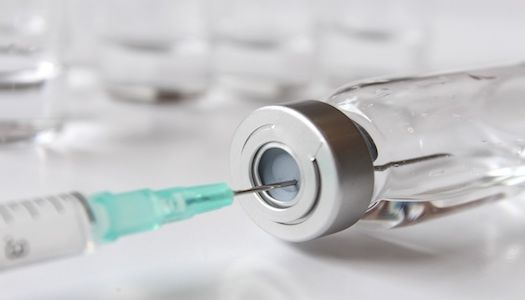Article
Mepolizumab Injections Improve Lung Function in Severe Eosinophilic Asthma
Author(s):
The phase 3b MUSCA trial reported positive results for mepolizumab.

Patients with severe asthma whose disease is driven by eosinophilic inflammation may experience improvement with a first-in-class biologic.
In a study presented at the annual meeting of the American Academy of Allergy, Asthma, and Immunology (AAAAI 2017) in Atlanta, Georgia, researchers found that mepolizumab (Nucala/GlaxoSmithKline (GSK)) provides clinically and statistically significant improvements.
Mepolizumab was approved by the US Food and Drug Administration (FDA) in November 2015 to be used with other asthma treatments in patients ages 12 years and older. The MUSCA (Mepolizumab adjUnctive therapy in subjects with Severe eosinophiliC Asthma) trial results revealed at AAAAI 2017 looked at patients with eosinophilic inflammation.
“These are patients who have very limited treatment options to control their asthma,” said Frank Albers, MD, PhD, medical affairs lead for Nucala, GSK. “For them shortness of breath, wheezing, coughing, and the risk of an asthma attack is an ever present occurrence and one that can have a severe impact their life on a daily basis.”
The phase 3b randomized, double-blind trial included 551 patients with an average age of 51. They either received mepolizumab (274 patients) or placebo (277 patients) 100 mg subcutaneous injection every four weeks for 24 weeks as an addition to their standard care. All of the participants had a history of two or more exacerbations within the previous year, even though they were being treated with regular high-dose inhaled glucocorticoids as well as other controllers.
Compared with placebo, the medication successfully improved patients’ health-related quality of life and lung function. The significant improvements became apparent four weeks in and onward. From baseline to week 24 (four weeks after a dose), St. George’s Respiratory Questionnaire (SGRQ) scores improved (-7.7 difference [95% confidence interval (CI), P < 0.001), indicating better disease-related quality of life. Asthma Control Questionnaire (ACQ-5) scores also improved (-0.40 difference, P < 0.001).
Lung function increased by 120mL (P = 0.001) more with mepolizumab than placebo, as measured with pre-bronchodilator FEV1. The researchers said that this is a statistically significant improvement.
For people treated with mepolizumab, annual asthma exacerbations decreased by 58% and attacks requiring visits to the emergency room or hospitalization decreased by 68%, compared to placebo.
Adverse reactions were reported in both mepolizumab (208 adverse events) and placebo (193 adverse events) groups. Of those adverse events, 23 (8%) and 15 (5%) were serious, respectively. The most common ones reported during the first 24 weeks were:
- Headache: 19% vs. 18%
- Injection site reaction: 8% vs. 3%
- Back pain: 5% vs. 4%
- Fatigue: 5% vs. 4%
- Influenza: 3% vs. 2%
- Urinary tract infection: 3% vs. 2%
- Abdominal pain upper: 3% vs. 2%
- Pruitus: 3% vs. 2%
- Eczema: 3% vs. <1%
- Muscle spasm: 3% vs. <1%
The report confirmed that safety findings were consistent with those indicated on mepolizumab’s label.
The study, “Mepolizumab Significantly Improves Health Status and Asthma Control in Severe Eosinophilic Asthma: The Musca Study — a Phase IIIb Randomized, Placebo-Controlled Trial,” was published in The Journal of Allergy and Clinical Immunology.





